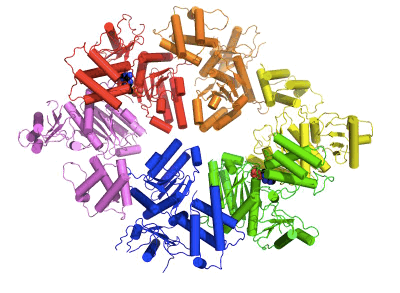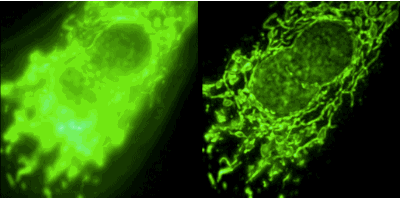Molecular and Structural Biology
BMS Faculty in Molecular and Structural Biology

Research Area Leaders: Dong Wang and Geoffrey Chang
The Molecular and Structural Biology Research Area brings together several departments at UC San Diego: the Departments of Cellular & Molecular Medicine and Pharmacology in the UC San Diego Medical School, the Skaggs School of Pharmacy and Pharmaceutical Sciences, and the Department of Chemistry and Biochemistry on the UC San Diego main campus. Research in these departments in Molecular and Structural Biology aims to understand how biology and disease arises from the dynamic interactions of molecules, from the smallest signaling molecules to the largest macromolecular protein complexes.
Faculty associated with the Molecular and Structural Biology Research Area study a range of topics including fundamental mechanisms of molecular motors and chromosome organization, host-pathogen interactions, and methods-development in computational modeling of protein structure and dynamics. The Research Area also includes several labs focused on Chemical Biology that develop chemical tools and probes to study molecular interactions and dynamics in living cells. A guiding principle throughout research at UCSD is the use of cutting-edge technology and multi-disciplinary approaches to advance fundamental knowledge and develop novel treatments for pressing human health needs.
Molecular and Structural Biology labs are tightly integrated with several other research and training initiatives on campus. The Molecular Biophysics and Chemical Biology Training Grants provide funded students with specialized training and a set of like-minded colleagues in their chosen research area. The multidisciplinary qBio Ph.D. specialization is open to all graduate students in the BMS program. Finally, the joint UCSD-Scripps Research Institute Visible Molecular Cell Consortium is a new effort to model and visualize the dynamics of cellular phenomena across scales, an effort made possible by the unique confluence of researchers and facilities in the UC San Diego area (including the San Diego Supercomputer Center, home to the RCSB Protein Data Bank).

BMS provides a unified core curriculum for all first-year students. Based on their interests, students can choose from a range of elective courses to fill their 15-unit elective requirement. Courses related to this research area are listed below.
| Quarter | Course Number | Course Title | Units |
|---|---|---|---|
| CHEM 204 | Introduction to X-ray Crystallography | 4 | |
| CHEM 207 | Protein NMR | 4 | |
| CHEM 213A | Structural Biophysics of Macromolecules | 4 | |
| CHEM 213B | Biophysical Chemistry of Macromolecules | 4 | |
| CHEM 215 | Modeling Biological Macromolecules | 4 | |
| CHEM 216 | Chemical Biology | 4 | |
| CHEM 257 | Bioorganic and Natural Products Chemistry | 4 | |
| CHEM 265 | 3D Electron Microscopy of Macromolecules | 4 | |
| PHAR 233 | Structural Biology in Cell Signaling and Drug Discovery | 2 | |
| BIOM 254 | Molecular and Cell Biology | 3 | |
| MED 224 | Molecular and Cellular Basis of Disease | 2 |
Additional Courses:
Molecular Biophysics Research Discussion and Journal Club (CHEM 251; 1 unit)
Students meet biweekly to present their research (first Tuesday of the month) and read and critically analyze recent papers in the field (third Tuesday of the month).
